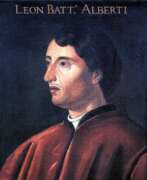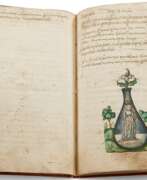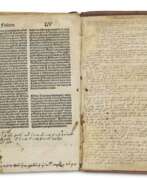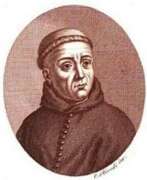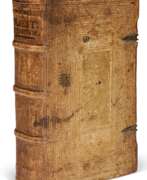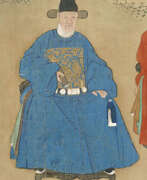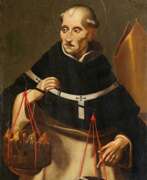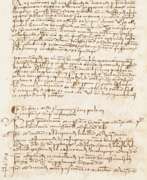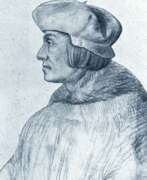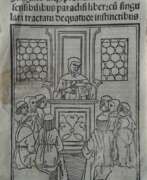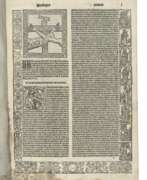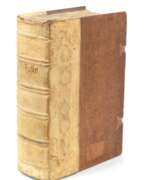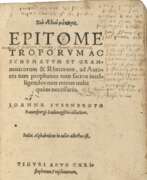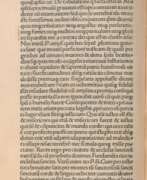Writers 15th century
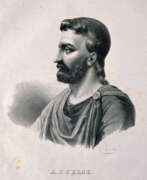

Cornelius Gerardi Aurelius, also called Goudanus, was a Dutch humanist scholar, writer, and historian.
Aurelius was a permanent canon (monk) of the Augustinian monastic order and is one of the first humanists of the Netherlands in the 16th century. He wrote poetry, historiography, hagiography, political and theological works. Aurelius also corresponded with many of the famous men of his day, especially Erasmus.
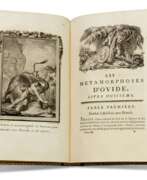

Johannes Busch was a major Dutch clergyman and reformed theologian.
As a monastic reformer and chronicler, the Augustinian canon of Windesheim, Johannes Busch is one of the most prominent figures of the Devotio moderna ("New Piety") movement in Catholicism. With his historiographical works Chronicle of the Monastery of Windesheim and Liber de reformatione monasteriorum he shaped the association of the Windesheim monastery and the late medieval observance movement.
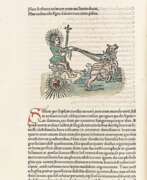

Coriolanus Cepio, or Coriolanus Cepico (Latin: Coriolanus Ceppico, Coriolanus Cepio) was a Venetian humanist nobleman of Croatian origin, historian, and military officer.
In Venice and Padua he studied humanities, navigation and military strategy, then worked as an official in his native Trogir. During the war of the Republic of Venice with Turkey, which lasted four years (1470-1474), Cepio participated in this expedition as commander of the Trogir galley. In Petri Mocenici imperatoris gestorium libri III (Venice, 1477) he described the military expedition and his experiences therein. Cepio describes in detail the military operations in the Levant, near the Ionian Islands, in the Peloponnesus and the Balkans, and in Asia Minor. He is especially interested in the conquest of Izmir, the attempts to set fire to the Gallipoli arsenal and the siege of Shkoder, the capture of Smyrna, the Venetian protectorate of Cyprus, and Scutari.
He covers the Venetian victories at Mochenigo very carefully. As a humanist, Cepio noticed everything that pertained to antiquity and ancient monuments. This book is one of the oldest printed works by Croatian authors.
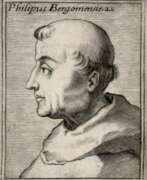

Jacopo Filippo di Bergamo, or Giacomo Filippo Forèsti (Latin: Iacobus Philippus Bergomensis) was an Italian Augustinian monk, theologian and chronicler.
Jacopo di Bergamo was born into a noble family, received his ecclesiastical education at the local monastery, and early showed a penchant for literary work. After traveling in Europe, he took the tonsure and was abbot of monasteries, engaged in their improvement.
He is known as the author of a number of significant early printed works, a chronicler and biblical scholar. His Supplementum chronicarum (1483) is a universal chronicle that survived many subsequent editions. And De claris mulieribus, published in 1497, contains the first account of the voyage of the discoverer Columbus.
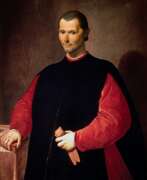

Niccolò di Bernardo Machiavelli was an Italian philosopher, politician and diplomat, historian and Renaissance writer.
As a young man, Niccolò Machiavelli faced financial difficulties due to his father's debts, but had access to a rich library. Machiavelli's early life and career began during a period of political upheaval in Italy. After the expulsion of the Medici family in 1494, for 14 years Niccolo Machiavelli served as a diplomat to the Florentine Republic. During this service, he gained a reputation as a cunning and unconventional thinker. However, when the Medici returned to power in 1512, Machiavelli was dismissed, imprisoned, and temporarily removed from political life.
During this period Machiavelli wrote his famous work The Sovereign, which has become one of the key works in the history of political philosophy. This book epitomizes the Machiavellian approach to politics, where the means justify the end, and where a leader should use any method to consolidate his power. The treatise drew criticism from the Pope, who condemned it for supporting rule through deceit and fear. Nevertheless, The Sovereign is still an important work of political literature, and Machiavelli has come to be called "the father of modern political theory."
Machiavelli lived the rest of his life in a small village near Florence, where he continued his creative endeavors, writing On the Art of War, as well as poems and plays. His literary legacy has become an integral part of the history of political philosophy.
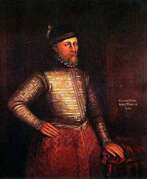

Sir Thomas Malory was a British politician, writer, poet and author of The Book of King Arthur.
Malory was born to a noble family in the county of Warwickshire in the early 15th century. As a knight he took part in the War of the Scarlet and White Rose on the side of the Earl of Warwick, in 1444 or 1445 represented his county in the English Parliament. He was convicted several times, spent the last 20 years of his life in prison, where he created his novels.
Malory wrote his book, consisting of eight volumes, while in prison for various crimes, completing it in 1469 AD, and he was released the following year. He called his work "The Whole Book of King Arthur and his Noble Knights of the Round Table," but when published in 1485 the book was titled "The Death of Arthur," which stuck. The only surviving manuscript is in the British Library in London.
The identity of the author of the King Arthur saga is still disputed by researchers. It is possible that another person hides under the name of Malory, but the influence of this medieval work on history and literature is undeniable.
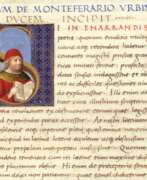

Georgius Merula, also Giorgio Merlani di Negro or Georgius Merula Alexandrinus, was an Italian humanist scholar, philosopher, philologist and historian of the Renaissance.
He held the position of professor and taught in Milan and Venice. But became known for being the first to print the works of Plautus (1472), Scriptores rei rusticae, Cato, Varron, Columella, and Palladius (1472). He also published commentaries on parts of Cicero (especially De finibus), Ausonius, Juvenal, Curtius Rufus, and other classical authors. Merula also labored in historical research and described several significant battles.
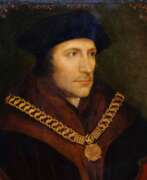

Thomas More was a British lawyer, humanist philosopher, writer and statesman.
As the son of a London judge of the Royal High Court, Thomas studied at Oxford and then in London with the best lawyers. More also studied the works of the ancient classics, improved in Greek and Latin languages, composed his works. In 1497 More met and became friends with Erasmus of Rotterdam, became a member of his humanist circle.
In 1510-1518 Thomas More was deputy sheriff of London, and in 1517 entered the service of the king, becoming one of the most effective and trusted civil servants of Henry VIII. He acted as his secretary, interpreter, speech writer, chief diplomat, counselor, and confidant. He was knighted in 1521, became Speaker of the House of Commons in 1523, and in 1525. - Chancellor of the Duchy of Lancaster. Around 1515. More wrote The History of Richard III, and in 1516 he published his most significant work, Utopia, in which he described an imaginary ideal state.
Thomas More opposed the divorce of King Henry VIII from Catherine of Aragon and refused to recognize the king as the head of the Church of England, as required by the Act of Supremacy in 1534. For his refusal, he was beheaded in the Tower of London in 1535. 400 years later, in 1935 Thomas More was canonized by the Catholic Church, and in 1980 the Church of England recognized him as a "saint and hero of the Christian Church."


Luigi Pulci was an Italian poet and humanist writer and diplomat.
For many years Pulci lived under the patronage of the Medici family and was a member of their circle of poets and artists, and later, after Lorenzo the Magnificent came to power, entrusted him with various embassies and diplomatic missions. At the age of about 40, Pulci entered the service of the northern condottiere Roberto Sanseverino and remained with him until his death.
Pulci wrote many different works, but is known primarily as the author of one of the outstanding epics of the Renaissance, the Morgante (Morgante or Morgante Maggiore). This chivalric-romantic parody and comic epic was first published in Italian in 1481. Its plot is based on the adventures of the knight Orlando and his squire, the giant Morgante. Pulci's unpretentious narrative and sharp satire immediately made "Morgante" very popular, but also aroused the anger of influential enemies like the Dominican friar Girolamo Savonarola, who called to burn copies of the book on the "bonfires of vanity".
Pulci's work influenced the French satirical writer François Rabelais (1494-1553).
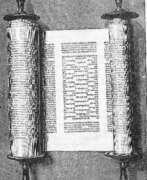

Paolo Ricci (Italian: Paolo Ricci, Latin: Paulus Ricius, German: Paul Ritz), also known as Ritz, Riccio, or Paulus Israelita, was a humanist convert from Judaism, a writer-theologian, Kabbalist, and physician.
After his baptism in 1505 he published his first work, Sol Federis, in which he affirmed his new faith and sought through Kabbalah to refute modern Judaism. In 1506 he moved to Pavia, Italy, where he became a lecturer in philosophy and medicine at the university and met Erasmus of Rotterdam. Ricci was also a learned astrologer, a professor of Hebrew, philosophy, theology, and Kabbalah, a profound connoisseur and translator of sacred texts into Latin and Hebrew, and the author of philosophical and theological works.
Paolo Ricci was a very prolific writer. His Latin translations, especially the translation of the Kabalistic work Shaare Orach, formed the basis of the Christian Kabbalah of the early 16th century.
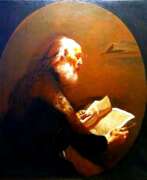

Celio Rodigino (Latin: Caelius Rhodiginus), real name Ludovico Ricchieri, was an Italian writer, educator and Renaissance humanist.
Rodigino studied in Ferrara and Padua, and then was professor of Greek and Latin at Rovigo. In 1515 he became chair of Greek at the University of Milan.
His principal work was Antiquarum Lectionum in sixteen books, published in Venice in 1516. In this work Rodigino collected a considerable number of short essays and notes on Latin and Greek antiquity, from literature, philology, and science to philosophy, history, anthropology, and morality, as well as reflections on ancient music. He also wrote commentaries on Virgil, Ovid, and Horace.
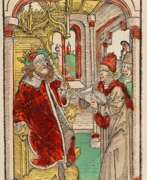

Werner Rolewinck (Latin: Wernerus Rolewinkius) was a German chronicler, historian, and theologian.
Werner Rolewinck was a Cartesian monk. His best known and most important work is Fasciculus temporum, a history from the creation of the world to Pope Sixtus IV. Already during his lifetime this work was republished many times in Latin, French, Dutch, and German. Drawing on major Christian historiographical sources such as Orosius and Eusebius, Fasciculus presents the history of the world in the form of a genealogy, a traditional historiographical structure dating back to late antiquity.
Another famous work by Rolewink is a description of the manners and customs of his homeland entitled De laude veteris Saxsoniæ nunc Westphaliæ dictæ.
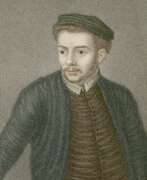

John Skelton was an English poet and writer of the Tudor period.
He was educated at the University of Cambridge, followed by degrees in rhetoric at Oxford, in the Netherlands, and at Cambridge. He was also a translator of ancient Greek and Roman authors. In 1488 Skelton was appointed court poet to Henry VII and then tutor to the Duke of York (later Henry VIII). In 1498 he took holy orders.
Skelton was known as a poet and satirist on both political and religious subjects. His best-known works include the moralizing play Magnyficence (1516), the humorous poem The Tunning of Elinor Rumming (1520), and numerous satirical poems in which he ridiculed both secular and ecclesiastical authorities. His reputation was confirmed by Erasmus of Rotterdam himself, who spoke highly flatteringly of Skelton.
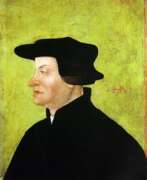

Huldrych or Ulrich Zwingli was a leader of the Reformation in Switzerland, born during a time of emerging Swiss patriotism and increasing criticism of the Swiss mercenary system. He attended the University of Vienna and the University of Basel, a scholarly center of Renaissance humanism. He continued his studies while he served as a pastor in Glarus and later in Einsiedeln, where he was influenced by the writings of Erasmus.
